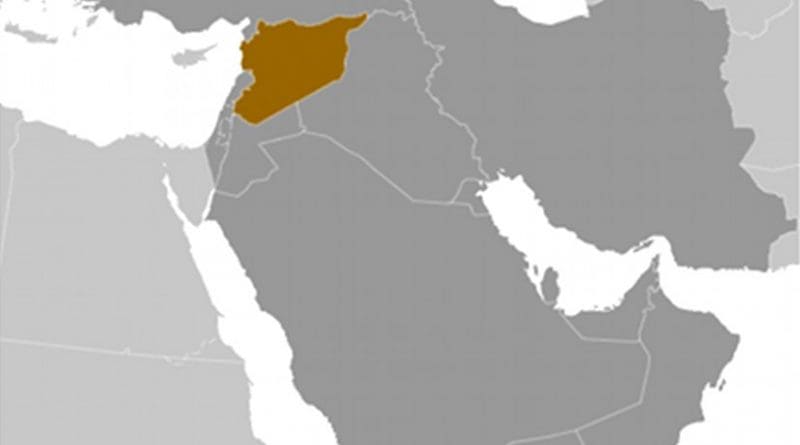UN: Syria Escalates Repression After Security Council Statement
The United Nations Security Council should press Syria to comply with the council’s demand to end attacks against peaceful protesters, Human Rights Watch said. Syria should comply with the Security Council’s August 3, 2011 statement, which also called on Syria to cooperate fully with the Office of the High Commissioner for Human Rights (OHCHR), which has been investigating the abuses in Syria.
UN Secretary-General Ban Ki-moon will brief the council on Syria on August 10, as requested in the Security Council statement. At the August 10 meeting, the Security Council should escalate pressure on the recalcitrant government by considering targeted sanctions, an arms embargo, and the appointment of a commission of inquiry, Human Rights Watch said.
“Not only has Syria ignored the Security Council’s demands, but it has responded to the international community’s demand to halt the violence by intensifying its bloody crackdown,” said Sarah Leah Whitson, Middle East director at Human Rights Watch. “President Bashar al-Assad needs to hear loud and clear that the Security Council will not tolerate such contempt for its united call for Syria to change course.”
In its August 3 statement, the Security Council unanimously condemned Syria’s authorities for “widespread violations of human rights and the use of force against civilians.” Since the statement, Syria’s government has attacked the cities of Deir al-Zor, Daraa, Saraqeb, Hoola, and Maaret al-Nu`man, and escalated its crackdown in Hama, killing at least 90 civilians and bringing the total number of civilians killed by the government since mid-March to almost 2,000. This week, the governments of Saudi Arabia, Kuwait, and Bahrain also expressed their dismay at the government’s attacks against its population by withdrawing their ambassadors and issuing strongly worded statements of condemnation.
On August 7, the Arab League expressed “growing concern” and called on the authorities to stop attacks on protesters while Pope Benedict XVI called on President Assad to respond to the “legitimate aspirations” of Syria’s people. Turkey announced that it was sending its foreign minister, Ahmet Davutoglu, to Damascus on August 9 with a “firm” message.
In the face of Syria’s continuing crackdown and defiance of the Security Council demands, the council should discuss additional measures, Human Rights Watch said. In particular, the council should consider targeted sanctions focused on the individuals responsible for the violence, and an arms embargo. In addition, if Syria continues to undermine the ability of the High Commissioner for Human Rights to investigate, the Security Council should mandate a commission of inquiry that would follow-up on the work of the OHCHR team. To ensure that such measures remain under consideration, the Security Council should agree to meet again in seven days.
In addition to shelling neighborhoods and shooting civilians, Syria’s security forces have detained activists and protesters, holding them incommunicado. On August 6, security forces arrested Walid al-Bunni, a leading opposition figure and former political prisoner, along with his two sons. His whereabouts remain unknown. They also began large-scale detention campaigns in Hama and Deir al-Zor, residents told Human Rights Watch. Since the beginning of anti-government protests in mid-March, Human Rights Watch has documented a systematic and deliberate policy of repression by Syria’s government that suggests that some of the violations constitute crimes against humanity.
Syrian officials accuse “terrorist groups” or “armed gangs” of causing the violence. They inconsistently and vaguely claim that the armed gangs are responsible for the deaths of protesters, or that the armed gangs have attacked security forces, leading the security forces at times to kill residents by mistake. Syria’s national news agency reported the burial of seven members of the security forces on August 8.
Human Rights Watch research indicates that the protests are overwhelmingly peaceful. Human Rights Watch has documented a few instances in which civilians used force, including deadly violence against security forces firing on protesters. While these incidents should be fully investigated, they can in no way justify the systematic violence of the Syrian security forces against their own people, Human Rights Watch said.
“The Syrian security forces have a lot of explaining to do, not just to the Syrian people, not just to the Arab people, but to the entire world, who have been watching their brutality in horror,” Whitson said. “The Egyptian and Tunisian military forces overwhelmingly refused to fire on their own people, but the Syrian military, apart from some brave individuals, has followed instructions to gun down ordinary people peacefully demanding their rights.”
Security Council action was blocked for months by the threat of possible vetoes by Russia and China, and only tepid support from India, Brazil, and South Africa, or the IBSA countries, the developing countries in the current Security Council membership. The Security Council meeting on August 10 takes place at the same time as a visit by a delegation from the IBSA countries to Syria.
On August 4, Human Rights Watch, Amnesty International, Avaaz, and the Global Centre for the Responsibility to Protect called on these countries to use this trip to urge the Syrian government to end attacks on peaceful protesters, release all political prisoners, and cooperate fully with the High Commissioner on Human Rights’ investigation.
“India, Brazil, and South Africa’s representatives should travel around and see for themselves the evidence of the government’s brutality in Hama, Daraa, and Deir al-Zor, and visit Syria’s overflowing detention centers,” Whitson said. “The IBSA countries should reinforce the Security Council’s message, and avoid euphemistic language about illusory reforms that whitewashes the Syrian government’s outrageous conduct.”

